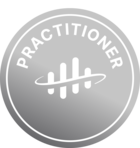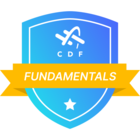Shifter has spoken with the two managers who form the backbone of Aker's new software department. They say that acquiring startups is high up on the agenda.
Kjell Inge Røkke recently announced a large-scale investment in software. He outlined a future with dozens of software companies under a separate Aker division called Axis. He told E24 that he has worked on this plan for five years.
That is about as long as John Markus Lervik has been in the Aker Group and developed Cognite. The company, which collects and analyzes industry data, was recently valued at NOK 5 billion by Silicon Valley investor Accel. Lervik has also been instrumental in the establishment of Axis.
“A lot has been created along the way, but this has existed as a conceptual idea since before the start in 2016,” Lervik said about the new initiative.
“The idea behind Axis is to see how people in Norway can build new startups, which can help solve some of the thousands of challenges and opportunities that the industry face. I think you can expect a lot of focused companies,” he said.
The world's best industrial software cluster
The company Lervik leads will be the foundation of Axis. He himself draws a parallel to the iPhone; a platform that makes it possible to build and distribute applications that solve thousands of problems in a simple way.
In the same way, the software companies in Axis will be built on top of the data that is collected, systematized, and analyzed in Cognite’s Data Fusion platform (CDF).
“The platform can be used for everything from helping individual workers in a company, to major advanced improvements of the major work processes and value chains,” Lervik said.
He acknowledged that there are many technology environments, for example in the US and China, that are better known and better than Norway in advanced technology such as artificial intelligence and machine learning.
“But we will combine domain knowledge from the industry with the best technologists. The goal is to make Norway the world's best industrial software cluster. It is entirely possible,” Lervik said.
The major trends behind the initiative
The backdrop for the investment is the trend of digital transformation in industry, as well as the major changes in energy and the environment, Lervik said.
“In Norway, we are in the middle of both, and are very well-positioned due to strong domain knowledge. We are also starting to get a lot of good software expertise. In addition, the authorities are waking up,” he said.
As an example, Lervik pointed out that the public sector is investing more in areas such as offshore wind and carbon capture. At the same time, the state pays more attention to start-up companies.
“If we as a nation manage to hang on to those trends, it will be a huge competitive advantage,” Lervik said.
Environment and finance
Like Røkke, Lervik referred to the controversial tax relief bill for the oil and gas industry that the Norwegian parliament passed in connection with the COVID-19 pandemic.
The package has received what some believe is the dubious credit for kickstarting the development of the Noaka field in the North Sea. The collaborative project between Equinor and Aker BP has a price tag of up to NOK 60 billion.
But in addition to extracting petroleum products from the field beginning in 2025, this development will play a key role for the first Axis company to be built on top of CDF: Aize.
“Cognite will drive the industrial transformation, make it more cost-effective and environmentally friendly. We offer the technology that allows you to obtain the relevant information needed to reap the benefits, both environmentally and financially,” Lervik said.
The test arena in the North Sea
Aize was established in March 2020, but has in reality existed for a while in Aker, under the name Project Normandy.
In a nutshell, the project aims to replace the old-fashioned processes that would otherwise have been used in various areas during the Noaka development with new, digital solutions.
The purpose of the project is to save time and money, facilitate better collaboration between various stakeholders, and at the same time make the processes greener.
This will be done using software developed by Aize. However, the software should not be tailored for this purpose; on the contrary, it must be scalable and transferable to other capital-intensive projects.
Industrial software environment
“There are many kinds of collaboration software, but here we are talking about a completely different complexity,” said Jarle Skrebergene, CEO of Aize.
The 37-year-old has experience from Cognite, Arkwright, and Kongsberg Digital.
When Kjell Inge Røkke launched the project in March, six people were involved. There are now 110 employees in the company, mainly through the acquisition of the company ix3 from Aker Solutions.
During 2021, Aize will grow to 200 employees, most of them technologists. In the years ahead, the goal is that such expansions will not be unusual in various Axis companies.
“We are establishing a unique industrial software environment at Fornebu. We will gradually grow out of oil and gas. This is Aker’s answer to today's major challenges,” Skrebergene said.
The battle for competence
He is prepared for a tough battle for talent, but Skrebergene believes that the software environment Aker is in the process of building at Fornebu will be attractive.
“It is about what kind of culture and profile such companies have. We are looking for people who have relevant cutting-edge expertise, and who are enterprising and open to looking at things differently to create change,” he said.
He believes much of the reason why Cognite has succeeded in recruiting is that they have been open to a lot of international talent.
“You have to be an attractive employer internationally,” Skrebergene said.
“But it will also affect the market for other Norwegian tech startups?”
“The fact that the Aker system is going all-in with software investments will have positive ripple effects for the entire environment. If you are recognized as the type of area and environment, it is noticed internationally. It is good for attracting both expertise and capital,” Skrebergene said.
Can inspire more
Håkon Høgetveit, COO at Aize, agreed with Skrebergene.
“I think it will benefit the whole environment. More people will study relevant subjects, and it will have a political impact. It is positive for the whole,” he said.
“There is an incredible number of startups and technology companies that, for example, come from the research communities, which solve specific problems. The difference in the Aker Group is that you can also take on the task of transforming very complex processes from A to Z,” he said.
Skrebergene also believes that Aker's investment will inspire other industrial groups.
“I am convinced that similar environments will emerge towards established industries, with a willingness to invest capital.”
Acquisitions on the radar
Going forward, growth through acquisitions is highly relevant, said Skrebergene. This applies to all of Axis.
“When we build this ecosystem, it is because we want to set up a scalable model for that type of growth,” he said.
With that, Aker has suddenly become a relevant player when it comes to M&A in the Norwegian start-up environment.
“You can hire top talent the traditional way. But nothing is better than finding established environments that converge with our strategy where you see clear synergies. It is a central part of the growth strategy,” Skrebergene said.
JOURNALIST: Magnus Peter Harnes
PUBLISHED: Wednesday, February 24, 2021 - 5:00 p.m.
Read the original article here (Norwegian).


 Check the
documentation
Check the
documentation Ask the
Community
Ask the
Community Take a look
at
Academy
Take a look
at
Academy Cognite
Status
Page
Cognite
Status
Page Contact
Cognite Support
Contact
Cognite Support


